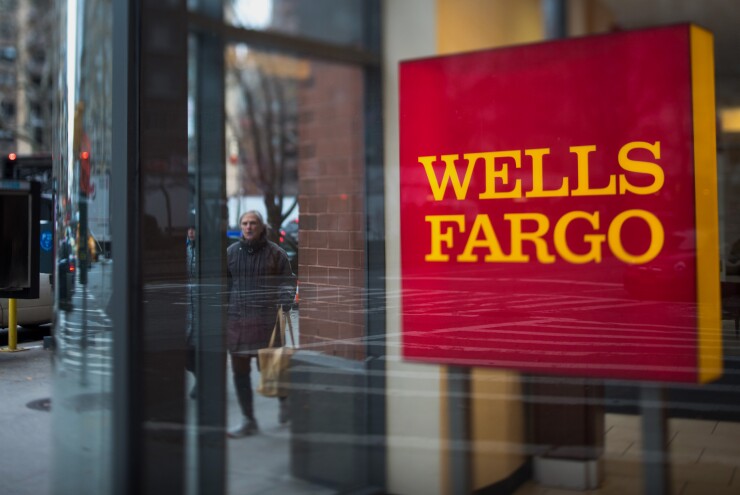
Wells Fargo employees working to unionize faced their latest setback on Tuesday when a collective bargaining proposal failed to garner enough shareholder support.
The proposal — which called on the $1.9 trillion-asset bank to adopt a formal policy outlining its framework for respecting workers' rights to organize, including a commitment to noninterference in the exercise of those rights — failed to obtain majority approval at the company's annual meeting. Wells Fargo said that it plans to release official vote tallies in a regulatory filing, but it did not specify a date.
In a
Laurie Kight, a Wells Fargo spokesperson, said after the voting ended Tuesday that the bank respects the feedback of its shareholders and will "carefully consider their recommendations regarding their proposals."
Employees of the bank launched the Wells Fargo Workers United group in late 2021. During Tuesday's meeting, a member of the group, Juan Sanchez, said that a growing number of his colleagues are joining the cause because they feel undervalued and underpaid.
"As a fellow shareholder, I also believe that respecting our international human rights as working people to join and form unions is in the best interest of Wells Fargo and its shareholders," Sanchez, an employee on the bank's global remittance team, said in a pre-recorded statement. "With the voice on the job through our union, we can perform at our best as employees."
Sanchez spoke on behalf of the AFL-CIO Reserve Fund, which brought the collective bargaining proposal before the bank's shareholders. Also involved in the organizing effort is the Committee for Better Banks, a campaign founded by the Communications Workers of America, which represents those working not only in the communications industry but also in other sectors.
Wells Fargo executives, said to be
The push to unionize workforces is a growing trend within the financial services industry. So far, workers at banks and credit unions have achieved mixed levels of success.
In the last two years, employees of the $39 million-asset
But organizing efforts by employees at Lake Michigan Credit Union in Caledonia, Michigan, have been met with pushback from upper management. Staffers of the $12 billion-asset credit union's
The group was successful in its
Nick Weiner, co-director of the Committee for Better Banks, said that the size of Wells Fargo and the amount of job compartmentalization at the bank have created a heightened degree of difficulty in comparison with employees at institutions that have unionized workforces. Those obstacles underscore the benefits that a union could have for both parties, he said.
"It's just a fact that workers who have a union and collective bargaining are better off than workers who don't, in terms of fair pay and benefits, protections against unfair treatment," Weiner said. "Employers benefit through reduced turnover, increased retention rates and greater commitment to the long-term success of the company."
During Wells Fargo's annual meeting, investors voted on a total of seven shareholder proposals,
One resolution calling for the bank to prepare a public report each year showcasing its progress in preventing harassment and discrimination against protected classes of employees — which was opposed by the bank's board — passed after receiving a majority of votes.






